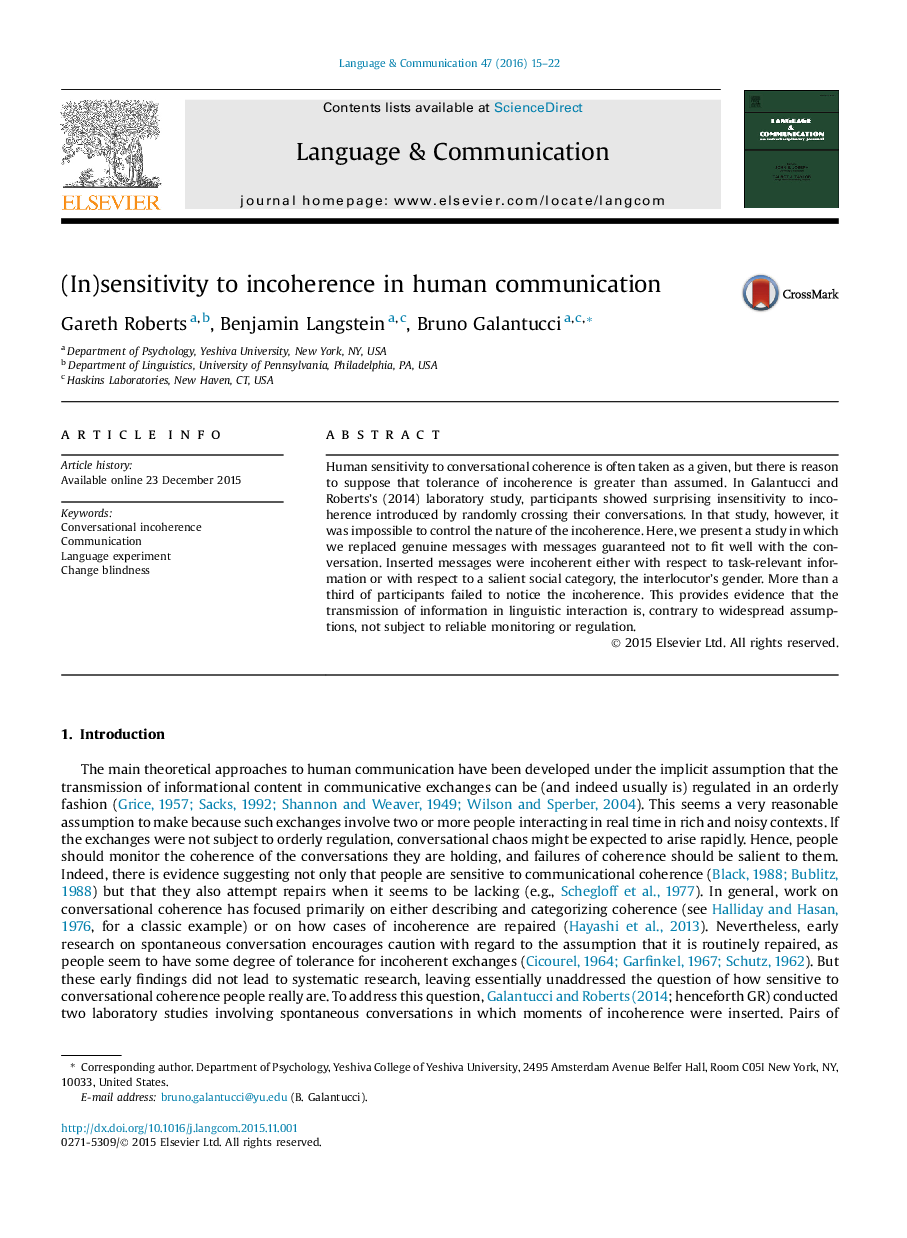| Article ID | Journal | Published Year | Pages | File Type |
|---|---|---|---|---|
| 935147 | Language & Communication | 2016 | 8 Pages |
•We inserted unexpected lines into text-messaging conversations.•Insertions referred to task-relevant information and the interlocutor's gender.•In every case, they straightforwardly contradicted available information.•Over a third of participants failed to notice the insertions.•Information transmission in linguistic interaction is not reliably monitored.
Human sensitivity to conversational coherence is often taken as a given, but there is reason to suppose that tolerance of incoherence is greater than assumed. In Galantucci and Roberts's (2014) laboratory study, participants showed surprising insensitivity to incoherence introduced by randomly crossing their conversations. In that study, however, it was impossible to control the nature of the incoherence. Here, we present a study in which we replaced genuine messages with messages guaranteed not to fit well with the conversation. Inserted messages were incoherent either with respect to task-relevant information or with respect to a salient social category, the interlocutor's gender. More than a third of participants failed to notice the incoherence. This provides evidence that the transmission of information in linguistic interaction is, contrary to widespread assumptions, not subject to reliable monitoring or regulation.
